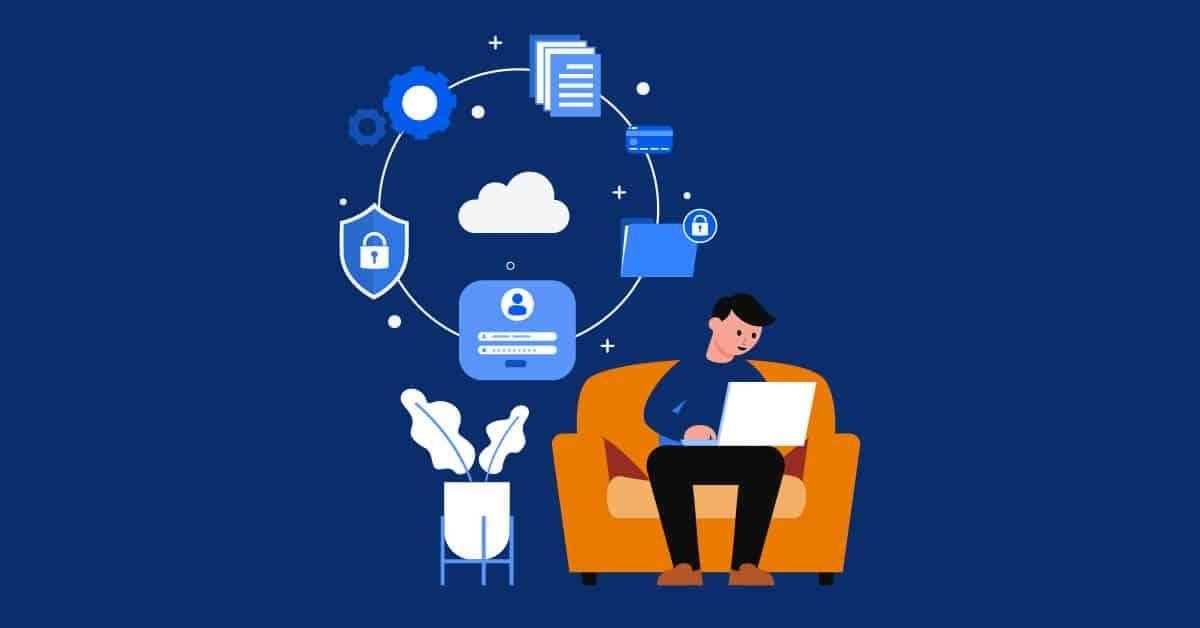Research shows that small businesses employ 61.7 million Americans. This represents 46.4% of private sector employees.
The impact of technology on small businesses can’t be underestimated. At the same time, it’s easy to think that only big corporations have to take security measures.
After all, they’re the ones working with massive amounts of data.
In reality, the size of the business doesn’t matter. Hackers want money, and they don’t care how they get it. However, avoiding a disaster with the right security strategies is possible. Here’s how you can do that.
1. Educate your team
Knowing what you and your team are doing when dealing with security threats is crucial. Educate your employees about the best cybersecurity practices, including:
- Recognizing phishing attempts;
- Creating strong passwords;
- Handling sensitive information accurately.
2. Don’t forget about real-life security
Yes, according to research, over 25% of business is conducted online.
However, never overlook the physical security of your office. Buy security devices like cameras or alarms, and use access control systems if you need to have a restricted area.
All these will prevent burglars from breaking, and authorities will be notified if they manage to do it.
3. Implement cybersecurity measures
It’s critical to invest in the right software if you want strong cybersecurity measures in place. For example, you can get antivirus software, firewalls, and other encryption tools to keep your digital assets safe.
Don’t forget to update this software regularly: the updates patch up vulnerabilities and keep the systems safe from emerging threats.
4. Keep updated backups
Data loss can sink a business pretty fast. 60 percent of small companies close their business within six months of falling victim to a data breach or cyberattack.
Keeping a regular backup of sensitive information and storing it safely is a smart strategy to avoid this scenario.
Even if your data gets stolen, your information will still be safe in a good backup.
5. Control who accesses the information
It’s important to limit your team’s access to sensitive data. This establishes clear leadership, and you will know who’s responsible for what if the worst happens.
Set up user permissions and authentication protocols to control who can see and edit critical information and keep the circle of trusted employees small.
6. Stay informed about security threats
Hackers are as fast as cybersecurity measures. Threats evolve all the time, and it’s important to know if what we’re doing is enough.
For example, in today’s world, passwords aren’t enough of a security protocol because cybercriminals can decipher them.
Stay informed about the latest threats, and implement efficient security measures, like multi-factor authentication and strong passwords. Join relevant forums and subscribe to security newsletters.
7. Get a Virtual Private Network (VPN)
But what does VPN stand for? In a nutshell, it’s software that hides your activity online by encrypting it.
A VPN provides a safe channel for data transmission, especially when accessing using public Wi-Fi networks or dealing with sensitive information.
To sum up
The security of their business should be the top priority for their owners.
Keep being proactive about your safety measures, and you will both protect your work and build a great reputation with your customers.
Security isn’t an expense; it’s an investment. Stay informed and keep your small business safe.

